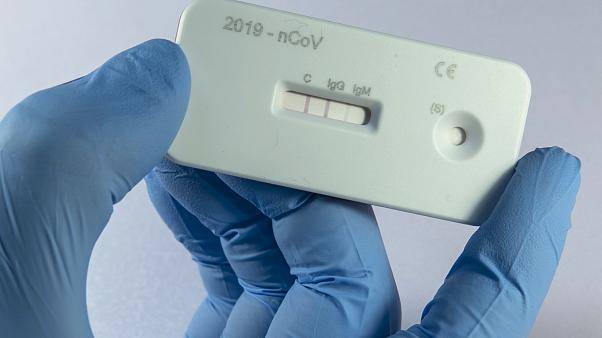Germany starts large-scale coronavirus antibody testing

Stay tuned with 24 News HD Android App

Germany is carrying out Europe’s first large-scale coronavirus antibody testing in an effort to help researchers assess infection rates and monitor the spread of the virus more effectively, according to a Financial Times report.
Head of the Robert Koch Institute, Lothar Wielerhas announced details of three serological tests — one of blood donations, one involving four areas of the country that had seen large outbreaks of the virus and a representative study of the broader population.
In determining infection rates, experts currently use models based on data that can quickly become obsolete or incomplete, and they have long argued that spot checks and randomised tests are a better approach.
But no country has successfully implemented a nationwide antibody testing programme. Germany has already emerged as a leader in testing for coronavirus itself, carrying out up to 100,000 tests per day, according to health minister Jens Spahn.
The aim of the Sars-CoV-2 antibody test programme is to find out how many Germans are immune to the virus and “how large the proportion of asymptomatic cases is — that is of people who were infected by the virus but didn’t know it”, Dr Wieler said.
The tests would also shed more light on how many people in Germany had died, so how high the mortality rate was, he added.
All three studies will be carried out jointly by the Robert Koch Institute, the Institute of Virology at Charité Hospital in Berlin and the Helmholtz Centre for Infection Research in Braunschweig.
In the first, up to 15,000 samples will be taken every 14 days from blood donations. The second will concentrate on four areas worst affected by Covid-19, with representative blood samples taken from about 2,000 people. For the first and second surveys, work will start next week, with the first results expected in May. In the third, 15,000 people in 150 regions across Germany will be tested for antibodies. Work is to start next month.
Wieler said the tests would allow health authorities to “better describe the course of the epidemic and get to know it better”. It would also allow researchers more effectively to evaluate measures taken to slow the spread of the virus and provide more information about unrecorded cases that were not reflected in official statistics, he added.
Establishing how far the virus has spread and how many of those infected died will help authorities decide when they can allow people to return to normal life. In the US, the Centers for Disease Control is also carrying out antibody testing. One survey involves blood samples from people not diagnosed with the virus in coronavirus hotspots, the second is a national survey from different parts of the country and the third a study of health workers.
